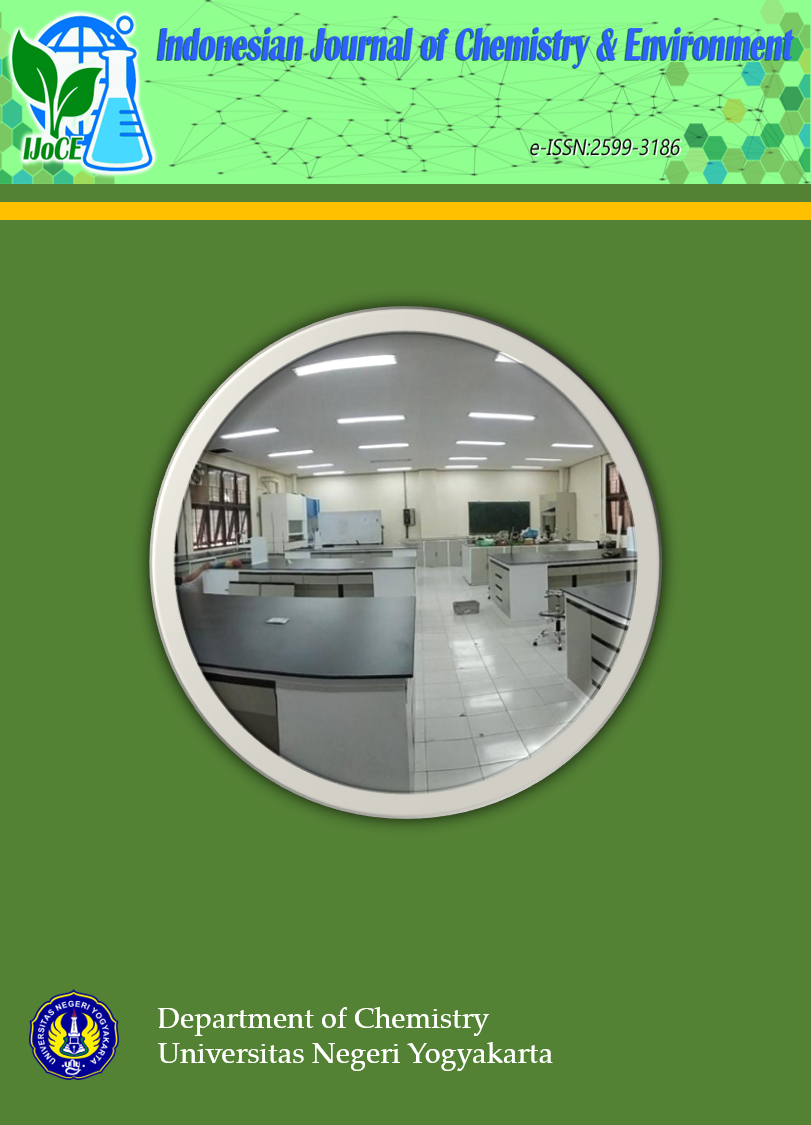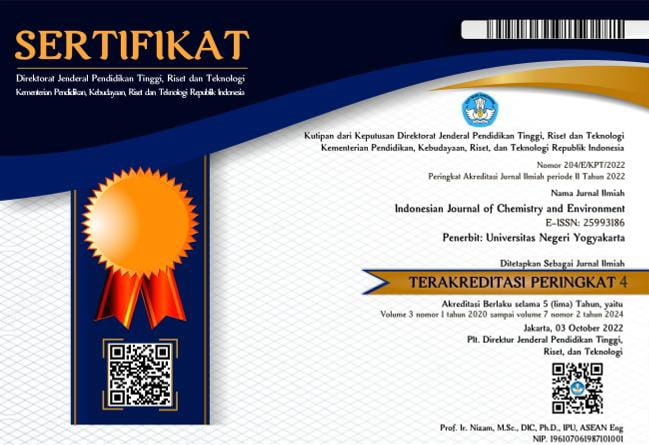Utilization of Natural Coagulant Substance (Tamarind and Winged Bean Seed) on the Quality of Tofu Wastewater in Muntilan, Magelang
DOI:
https://doi.org/10.21831/ijce.v2i1.30294Abstract
The aim of this study is to determine the effect of various mass in tamarind and winged bean seeds on pH, TDS, and COD in tofu factory wastewater. The research was conducted at the Chemistry Research Laboratory of FMIPA UNY in December 2018. The results showed that the addition of various mass in tamarind and winged bean seeds as much as 7, 9, and 11 grams of tofu factory wastewater had an effect on pH which increased from the initial condition of 2.5 to 2.6; 2.7; 2.8 in tamarind seeds, and 2.8; 2.9; 3.0 on winged beans. The COD test increased from the initial condition of 6619.20 mg / L to 7312, 64; 7880, 00; 8195.20 mg / L in tamarind seeds, and 9140.80; 10464.64; 9329.92 mg / L in winged bean seeds which have decreased again in the addition of 11-gram coagulant substance mass. TDS test has increased from the initial conditions of 1512 mg / L to 1715; 1736; 1848 mg / L in tamarind seeds, and 1890; 1988; 1855 mg / L in winged bean seeds.
Downloads
Published
2020-02-21
How to Cite
[1]
Elpani, S.E. et al. 2020. Utilization of Natural Coagulant Substance (Tamarind and Winged Bean Seed) on the Quality of Tofu Wastewater in Muntilan, Magelang. Indonesian Journal of Chemistry and Environment. 2, 1 (Feb. 2020), 25–32. DOI:https://doi.org/10.21831/ijce.v2i1.30294.
Issue
Section
Articles
Citation Check
License
Authors who publish with this journal agree to the following terms:
- Authors retain copyright under a Creative Commons Attribution–ShareAlike License (CC BY SA) that allows others to share: copy, and redistribute the material in any medium or format, Adapt: remix, transform, and build upon the material, for any purpose, even commercially.
- Authors are able to enter into separate, additional contractual arrangements for the non-exclusive distribution of the journal's published version of the work (e.g., post it to an institutional repository or publish it in a book), with an acknowledgement of its initial publication in this journal.
- Authors are permitted and encouraged to post their work online (e.g., in institutional repositories or on their website) prior to and during the submission process, as it can lead to productive exchanges, as well as earlier and greater citation of published work.










